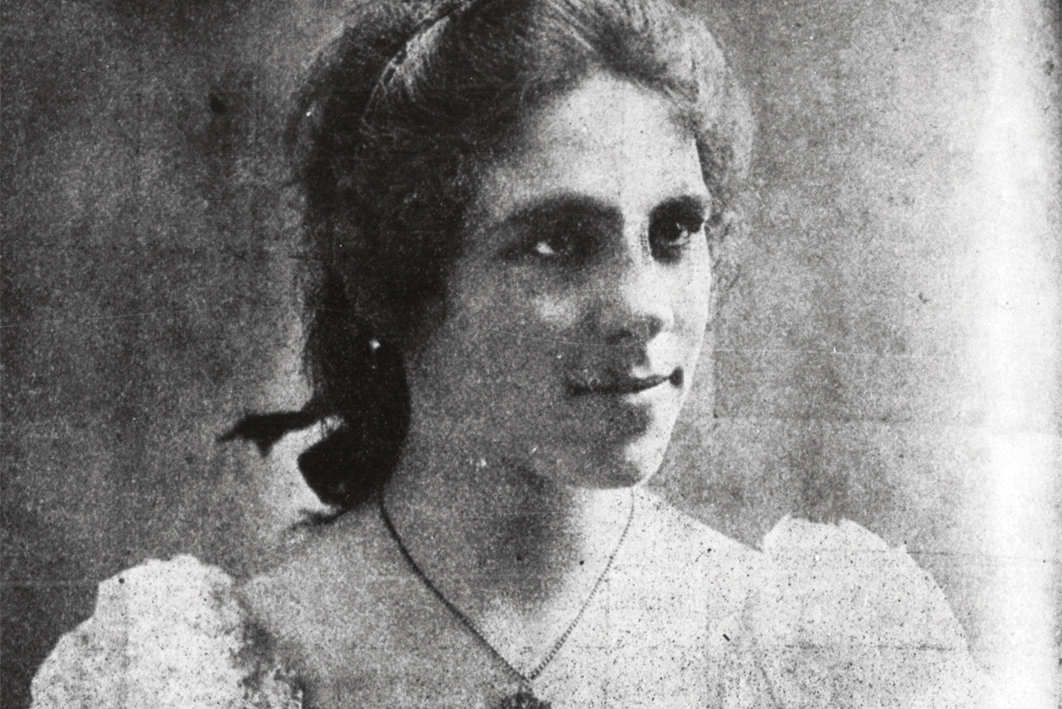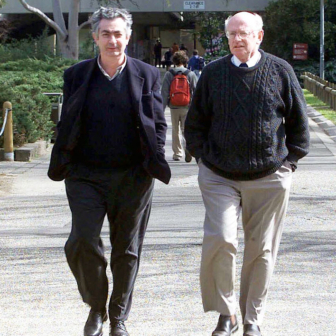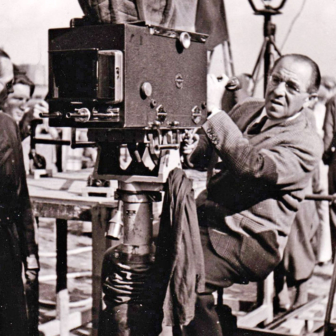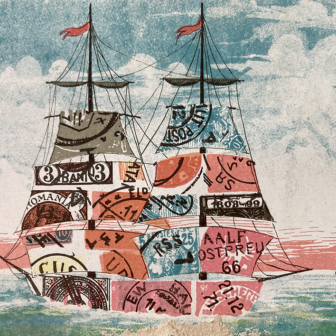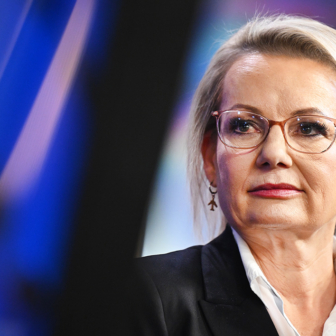Part of our collection of articles on Australian history’s missing women, in collaboration with the Australian Dictionary of Biography
At the age of thirty-nine Lili Sharp was dubbed “a new Melba.” Her diminutive stature and slight build concealed a voice “of exceptional quality,” wrote one critic, “full and rich in tone, of great range, and under perfect control” that let fall “diamonds and pearls of song.” Over the previous decade she had toured extensively, performing at venues in Asia and Europe. But while she garnered critical praise and popular support, she failed to make an enduring impact on the global musical stage.
Lili Louisa Sharp was born on 4 February 1876 at Charcoal Gully in the central Victorian town of Sandhurst (now Bendigo), the daughter of Scottish-born James Sharp and Sydney-born Hannah Rice. Her father had arrived in Australia with his parents and siblings on an assisted passage in 1852, and had worked as an agricultural labourer at Avoca before being lured to the goldfields. She was the tenth child in a family of seventeen children; three of her siblings died in childhood and her father died of tuberculosis in 1896.
Educated at East Sandhurst State School, Lili gained awards for attendance and for proficiency in examinations and homework in 1885. By the time she was eighteen she was appearing as a vocalist in local concerts and competitions, often alongside her younger siblings Bert and Olive. She received early tuition in voice from the well-known teacher John Herbert Bryan. Appearing in the Bendigo Glee Club’s performance of the opera Les Cloches de Corneville in 1896, her performance was deemed by one critic a “decided success” characterised by “fine singing and vivacious acting.”
In June the following year she won a competition for best patriotic song at Eaglehawk’s celebrations for the Queen’s Diamond Jubilee. The judge, Charles Horatio King, a talented violinist and pianist, was from a musical family and had moved to Bendigo to take up the position of organist at All Saints’ Church. He went on to teach violin at Girton College and took private students in voice, violin and pianoforte. At Ballarat’s South Street Literary and Debating Society competition in September 1897, Lili, now his pupil, “took the place by storm.” She won the categories for humorous song and soprano solo, as well as a certificate of honour as the most successful musical competitor.
A year later, Lili won every solo event she entered — soprano, soprano (sacred), mezzo-soprano and contralto — at the Austral Literary and Debating Society competition. Over two years, as King wrote in a local newspaper, she won twenty-seven first prizes, three gold medals and three champion certificates. She made her Melbourne concert debut at the Town Hall in July 1899, attracting a large audience that demanded several encores. Encouraged by her successes, she held a farewell concert in Bendigo before touring New Zealand with King for five months from late 1900. During her early years as a performer she was often compared to her much-admired younger Bendigo rival, Amy Castles, who had left in search of fame overseas two years earlier.
King, whose mop of wild hair resembled that of the eminent Polish pianist Paderewski, had by this time adopted the stage name of Melnoth Rafalewski. Lili was billed as the “Australian Nightingale,” and he was a pianist of “Magnetic Power and Influence.” Although the duo’s performances received overwhelming praise from reviewers, their audiences were seldom packed and the Wellington show was disrupted by “rowdies.” They returned briefly to Australia before announcing that Lili would travel to Paris to undertake further training. She and King married in Sydney on 13 May 1901, departing later that day on the French mail steamer Polynesien. Their marriage was not announced in home papers until November.
The couple spent several years in Britain. They appeared in dramatic entertainments, plays, operas and concerts, and performed with the Hungarian violinist Karcsay and with the Kubelik concert company. Lili was also reported to have studied under the Danish teacher and composer Hjovard. From 1908 they toured extensively. Consummate self-promoters, they sent frequent postcards and letters home reporting on their success overseas and documenting their travels.
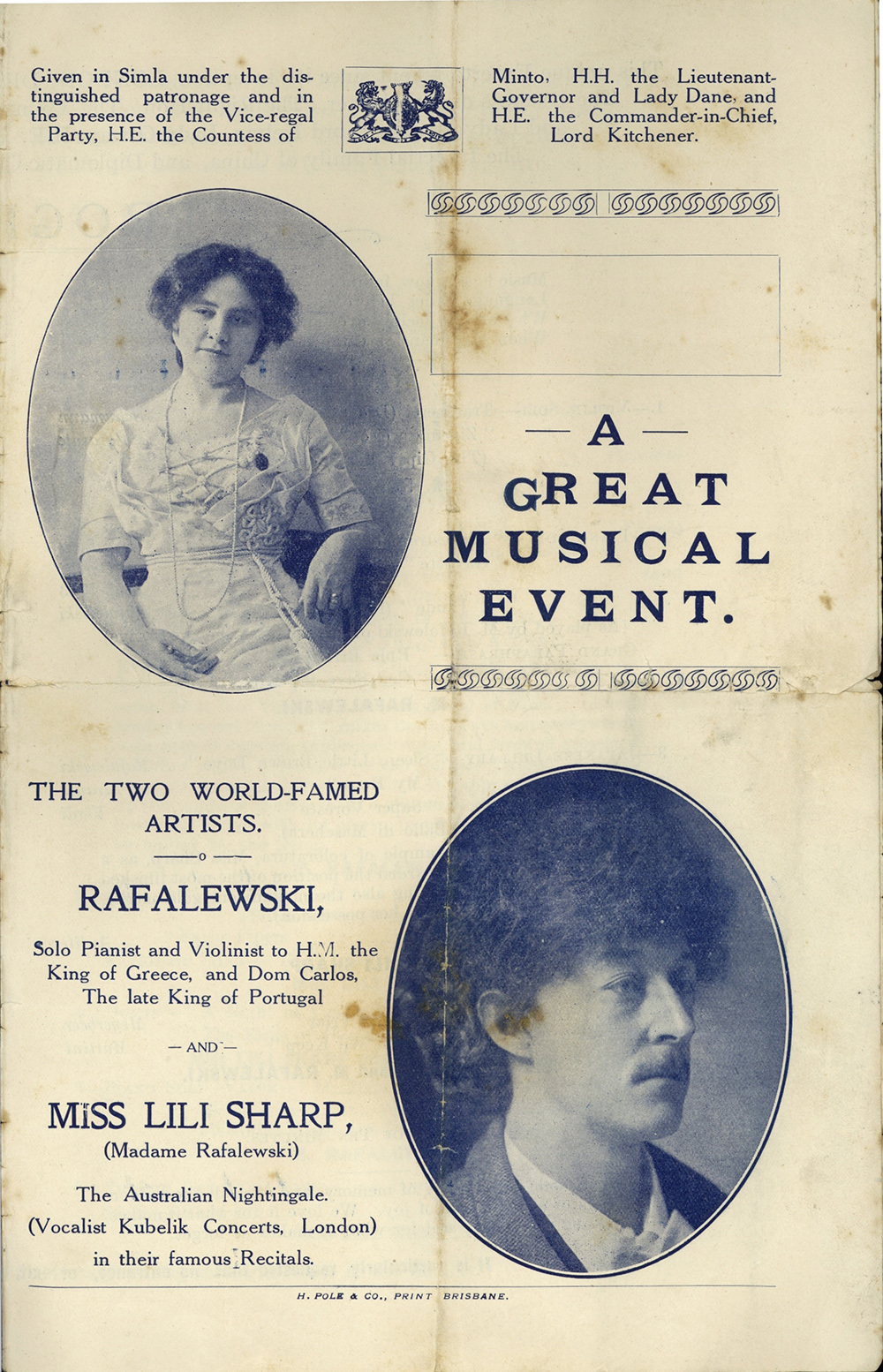
Poster for musical event in India with Lili Sharp and Monsieur Rafalewski. National Library of Australia, 3530565
As Monsieur Rafalewski and Miss Lili Sharp they performed in Gibraltar, Greece, Turkey, Portugal, Russia, Spain, Egypt, Ceylon (now Sri Lanka), India, China, Siam (now Thailand), Burma, Java, Japan and the Philippines, among other places, claiming to have presented some one thousand concerts. King wrote of how they performed for the monarchs of Greece, Portugal and Siam, and — after a forty-hour bullock journey with only bananas to eat and coconut milk to drink — he played for the Maharajah of Travancore. In July 1912 the Bulletin quipped that they had arrived back in Australia “with just about as many labels on their carpet-bags as any couple could reasonably hope to collect in a lifetime.”
The duo settled in Sydney, where they offered private tuition, reputedly at a guinea a lesson, and briefly operated a picture theatre in Marlborough Street, Leichhardt. Lili was known to open the evening’s entertainment while King occasionally played the accompaniment to the film. In 1915 the Bendigo Independent, familiar with their past, mocked press reports from Bundaberg, where they were touring, that “Charley” was “Russian” and Lili was “greater than Melba.” During 1918 and 1919 they conducted a concert tour to the East Indies and Far East.
In their later years Madame and Melnoth Rafalewski (as they were increasingly known) lived on The Avenue at Lane Cove and listed their occupations as artists. Forgoing overseas tours, they performed locally, and King taught from a studio at W.H. Paling & Co. in George Street.
King died on 19 August 1950. He left his entire estate, valued at over £31,000, to Lili. Newspapers at the time noted that he was “one of the few professional musicians to have amassed a large fortune from a musical career.” It was, of course, the product of the couple’s tireless performance schedule and talent for promotion. By 1963 Lili had moved to Melbourne, where she was closer to the children of her late sister Olive. Her savings afforded her a comfortable retirement until her death on 27 May 1964. By then, few recalled the time when she and Amy Castles were dubbed the “birds from Bendigo”:
Australian birds are songless, some.
Aver — or, like the cockatoo,
They shriek — are boisterous or dumb.
But such the hasty word will rue,
When Ame and Lil they hear; heigh-ho.
The birds can sing at Bendigo.The golden city — on its name
The mem’ry of the miner gloats.
Eclipsed is all — a greater fame
’Twill gather from their silver throats.
Australian birds are songless. No,
Just hear the birds from Bendigo.
— “Outis,” in the Critic (Adelaide), 12 August 1899
